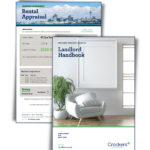Auckland saw new listings remain flat, with a 0.0% increase in year-on-year growth. Vanessa says that this is especially interesting considering Auckland was in and out lockdowns last Feb. Lockdown restrictions usually reduce the number listings that come onto the market. Except for Central Otago and Dunedin city, all the locations which have seen prices double are in the North Island.
He stated that there was still uncertainty in the community because of the new omicron version of COVID-19. “The CBD is noticeably quieter than usual, which may also be due to rising prices – people have less available money to spend as a result of inflation.” “We’re not seeing the double digit quarterly value growth we were used to seeing throughout last Year, Christchurch is still leading at 8.8% quarterly growth. This is a reflection on the relatively affordable pricing in our second-largest city.
This map shows a breakdown of how over or under-valued each council area is right now in the Auckland property market. These figures are calculated exactly the same way as the graph in the above section. Auckland usually achieves a lower yield than other areas of the country.
This represents an average annual increase of 26.8%, down slightly from 28.4% annual growth last month. Greater Auckland’s overall QoQ growth rate of 3.8% is one the lowest over the period. Some areas of the city are in a far worse position. Waitakere’s growth during this period was just 1.1%. Meanwhile, the North Shore and the central city suburbs have also suffered. Northland is the country’s strongest housing market. The average property value in the region grew 7.9% in the three-months to February. This is an increase of 6.9% from the three-months to January.
People are witnessing years of savings disappearing as deposits vanish. This is just the beginning as rates rise from their emergency levels. Exactly – when talking to property investor types they keep telling me that its not in the best interest of society for property prices to fall because of the widespread pain it will cause. Answer: Wait 6 months until there are no more property bulls. Then, buy. It is possible to miss the bottom, but it is much better than buying now. This is why property has become a welfare program for the wealthy more than a market.
This will add to the challenges when considering Auckland’s housing market. But these are unlikely to reach levels painful enough to elicit a wave of selling by either investors or general owner-occupiers. The chances are that after falling 5.5% in nominal terms since November, Auckland house prices will fall by at least that amount over the remainder of this year. “Pinning economic growth to ever-increasing house prices is ultimately going to be unsustainable and exacerbating this is the fact that in order to sustain those increases in house prices, we’ve had households borrowing more and more. Last month saw house prices decline by a third in 19 months. Prices were lower than February in some cities like Wellington, Hamilton, and Dunedin. Home values increased by an average of 2.4 percent across the wider Canterbury region over the first three months of this year, with the Selwyn District leading the way with 6.1 percent.
That’s what the Reserve Bank is predicting will happen at the back end of next year. I just hope that property falls enough as food prices rise that one day I can say landlords and baby boomers could have avocado on toast if they hadn’t been spending all their money on houses. Granny Herald reporting that up to 30% of agents will move to other work.
Barfoot & Thompson managing director Peter Thompson said while sales were down significantly year-on-year, last February was exceptionally busy. QV senior consultant Blake Ngarimu said the stats showed a continuing fall in the market. “They have stopped buying, and the suburbs have softened.” However, tighter credit conditions, rising material and labour costs and lengthy supply chain delays had dampened demand among developers. In recent months, however, the tide has changed and it is now much more difficult to obtain a home loan.
For three consecutive months, Canterbury has been the top-ranking HPI movement. This is a reflection of the strength of the market’s property values. Comparatively, Otago and Wellington have sat in the bottom two over the same period. While this is new for Wellington, Otago has spent 17 of the last 21 months in the bottom two annual HPI movements, which suggests that value growth in the in Otago is weaker compared to other regions. “While hard evidence is lacking in terms of the impact of the CCCFA, data from Centrix, a New Zealand credit reporting agency, found the percentage of home loan applications that were approved dropped from 39% in October to 30% after December.
“Things have certainly cooled off, especially at the lower-value end of the market, with the city’s more expensive home values still showing more strength,” said local QV property consultant Olivia Brownie “Now we are seeing slower growth months and even some value shrinkage in the early 2022.” This is particularly prevalent in the main centres where some of the largest value increases over the past two years have occurred. According to the QV house price index, the first cities to experience the effects of the downturn in house prices were those in the city. Both suburbs are zoned for intensification by Auckland Council, which has led to developers rushing to buy homes in recent decades that can be demolished and rebuilt with multiple townhouses or apartments. Meanwhile, price drops in Auckland’s Mt Roskill and its neighbouring suburb Mt Albert – where values fell 3 per cent or $50,000 to $1.61m – are likely linked to a slowdown in new building activity, he said. Read more about get more here. Evidence for that could be seen in even sharper price falls in March, where in the course of one month Auckland home values dipped 1.4 per cent or $22,000.





